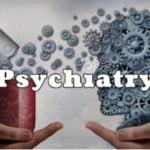Follow-Up Tools from my talk with Ben Pakulski
Although I spoke with Ben Pakulski on the Muscle Intelligence Podcast for over an hour, we didn’t scratch the surface of the depths we can and have gone in our past conversations. As an example, we both believe in the principle of self-directed Neuroplasticity. That is, your brain is adaptable - ‘plastic’ - throughout your lifetime. Each person has the power to change his or her brain for the better. We also believe in the importance of teaching Neuroplasticity tools to our kids from a very young age. It is probably the most important lesson a child can learn and take with them as they grow into adulthood.
As our discussion took off, we didn’t save time to reveal the tools and tactics I so wanted to share with you and Ben’s audience. In my 35 years in the practice of neuropsychiatry and integrative medicine, I’ve honed it down to 7 steps to grow our brains in ways that serve us emotionally, cognitively, and socially.
1. Compassion: Would we tell our best friends that they suck, that they are weak, pussies, or useless? Yet we tell ourselves this with regularity. We must change this negative self talk about our emotions, perceived failures, urges/impulses, thoughts, and behaviors into one of compassion and empathy for ourselves.
2. Acceptance: Accept that we will have, literally every day, feelings, thoughts, and behaviors that feel uncomfortable or unacceptable. These are normal and come from unconscious places in our brain, and do not indicate that we are bad. To work with your mind, all judgment must first be suspended.
3. Vigilance: Next, be vigilant for the emergence of these unconscious interferences in our happiness, relationships, and performance in a free-floating way. Be in a state of anticipatory readiness.
4. Awareness: Begin to feel your triggers, blocks, and interferences in your body and mind. These may be thoughts, bodily sensations, emotions, or impulses. Many of these will feel uncomfortable, forbidden, anxiety-provoking, or even repulsive. This is where you must bring compassionate inquiry and not a judgment on yourself. Your thoughts do not define you as a person. Your emotions are not actions.
5. Regulate: When we are triggered, our nervous systems upregulate, and we begin to feel an urgency, building anxiety or tension/stress to act. Much of this is the perception of signaling from our bodies. The moment that we begin to be aware of this, we begin slow breath work and realize that we are being triggered, but we have the ability to regulate ourselves and calm ourselves.
6. Reading: once we have calmed ourselves down, we can begin to integrate what we are sensing in our bodies, with the state of mind we are in, and the reality of the situation. Our frontal lobes can begin to take over.
7. Processing: using this knowledge as data to inform us allows us to make decisions and create actions that are in our own best interest or the best interest of others that we are connected with.
These are the steps to managing our minds. Practicing the steps sounds complex. However, as with any new skill, once we are adept at it, it becomes automatic, and we can and will be able to use this in any situation in a matter of seconds. We are now changing our brains' genetic expression to rewire our synapses in a process called synaptic Neuroplasticity.
We are now in control of our mental states and our lives as we live them.
If you haven’t yet listened to my talk with Ben Pakulski on The Muscle Intelligence Podcast, click here for the audio or click here for the video version.









1 thought on “Great Performance Begins With Your Mind: Tools from Ben Pakulski Podcast”
Comments are closed.